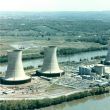An exaggerated risk, yet a real one
By Shahriman Lockman, April 12, 2012
As more and more countries in the developing world consider adopting nuclear power, Western governments and the nonproliferation community all too often exaggerate the attendant risks of weapons proliferation. So should concerns about the security implications of new nuclear power programs therefore be abandoned? My answer is no — not when the resources, institutions, and attitudes needed to ensure nuclear security and safety remain in short supply in the developing world.
In his first essay for this Roundtable, P. R. Kumaraswamy asserted that few countries with nuclear energy programs have sought to develop nuclear weapons. He is correct. Indeed, nonproliferation scholar Matthew Fuhrmann recently analyzed 129 countries, some of which showed interest in nuclear power and some of which did not, between 1965 and 2000. He found little support for the notion that nations pursue nuclear energy in order to lay the foundation for future nuclear weapons programs. In other words, countries do not generally engage in nuclear hedging.
Thus, officials from developing countries are justifiably puzzled by the alarm with which their counterparts in the developed world view nuclear proliferation. The United States, in particular, often regards remote security threats — including those stemming from nuclear proliferation and nuclear terrorism — as if they were certainties, despite the fact that the world is arguably less dangerous today than ever before (particularly for the United States). Further, security expert Tom Sauer argues that Europe's nonproliferation policy since 9/11 has increasingly come to resemble that of the United States.
Despite all this, the international growth of nuclear energy does in fact present risks, and we should not underestimate them. True, new producers of nuclear energy do not generally intend to proliferate, but it remains unwise to dismiss the possibility that a given country with nuclear power might someday seek to harness its latent weapons capability. In Southeast Asian countries, for instance, nuclear breakout appears unlikely, but cannot be ruled out over the long term, especially if the region's strategic environment undergoes dramatic, destabilizing changes.
Furthermore, it should be acknowledged that developing countries often lack the resources and institutions needed to maintain nuclear security — which the International Atomic Energy Agency defines as "the prevention and detection of, and response to, theft, sabotage, unauthorized access, illegal transfer, and other malicious acts involving nuclear material, other radioactive substances, or their associated facilities." Vietnam, for instance, has said it will build up to 10 nuclear reactors by 2030, but doubts surround its ability to train the personnel necessary to operate and regulate these plants. Moreover, according to the Nuclear Materials Security Index produced this year by the Nuclear Threat Initiative and the Economist Intelligence Unit, Vietnam rates poorly across a number of nuclear security indicators; among other issues, corruption is pervasive and the country lacks an independent regulatory agency. It is worth remembering that Vietnam has not even ratified key international agreements on nuclear security, such as the Convention on the Physical Protection of Nuclear Material and its 2005 amendment.
Beyond these issues of nuclear security, another reason to view with concern the expansion of nuclear power in the developing world is the lack of safety culture in developing countries. Kumaraswamy, in his first Roundtable essay, highlighted the lackadaisical attitudes toward safety that exist in some developing countries, while Gilberto M. Jannuzzi mentioned the high cost of maintaining the capabilities necessary for operating nuclear power plants safely. But nuclear safety and nuclear security are increasingly recognized as overlapping and indeed as requiring common responses. For example, defense-in-depth techniques — which involve creating multiple layers of defense against human and mechanical failures in nuclear facilities — provide protection not only against nuclear accidents but potentially against sabotage and attack as well. Developing countries that contemplate the adoption of nuclear power should seriously ponder whether their safety capacities — not to mention their security capacities — are really up to the task.
Developing countries deciding whether to embark on nuclear energy programs face a complex set of considerations. Yes, growth in energy demand is a crucial issue. And climate change represents a major problem for developing countries. But addressing these challenges should not preclude making sober assessments about weapons proliferation and nuclear terrorism.
Topics: Nuclear Energy, Nuclear Weapons
Share: [addthis tool="addthis_inline_share_toolbox"]














